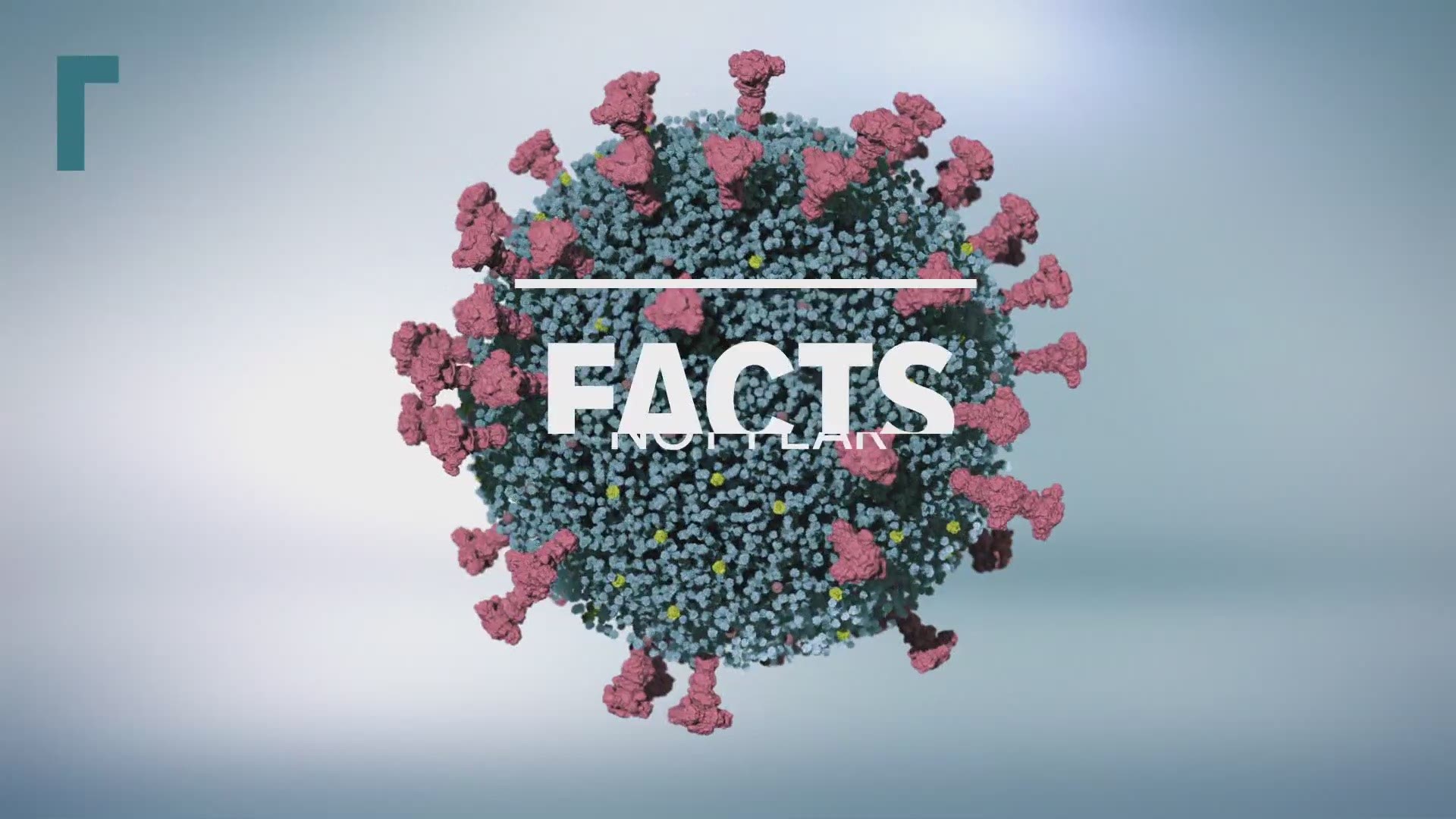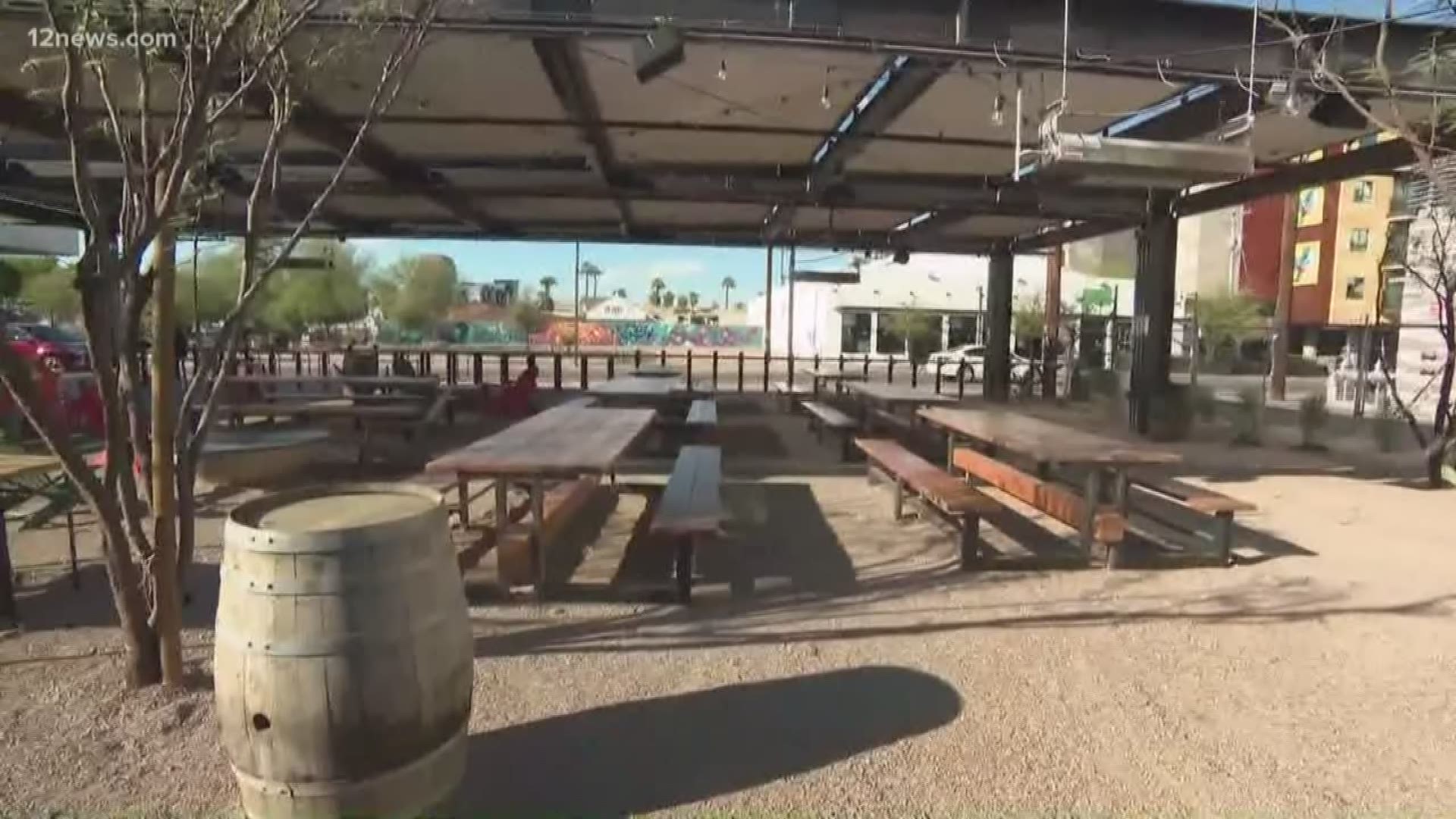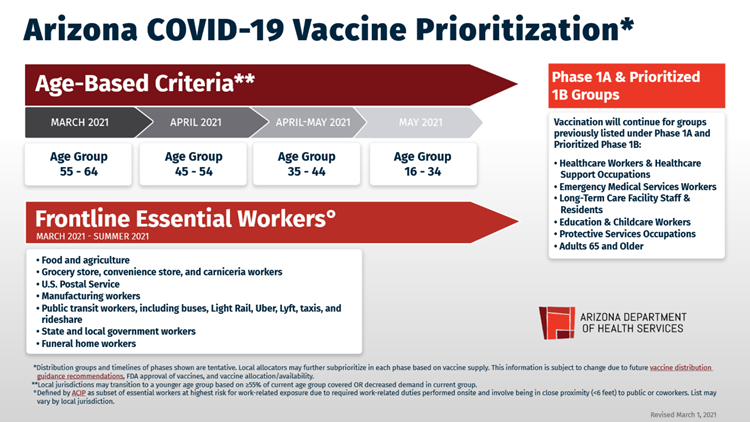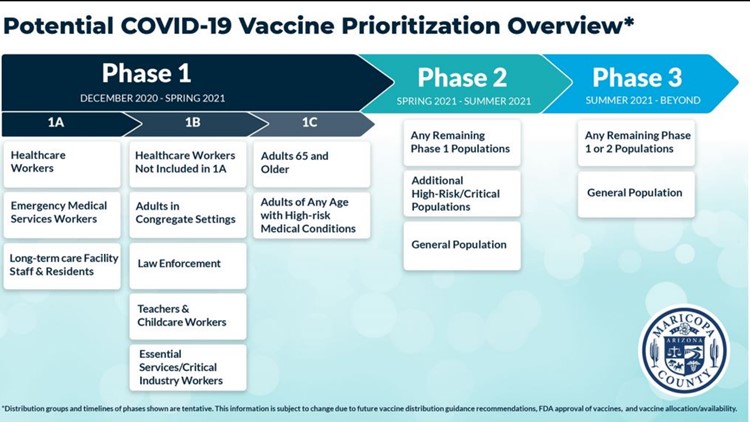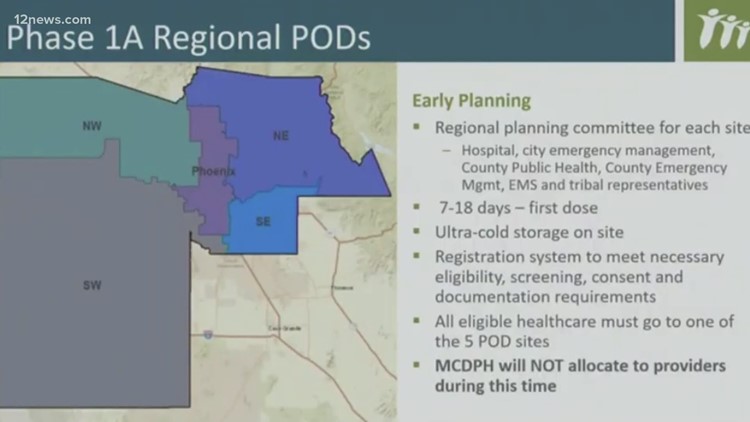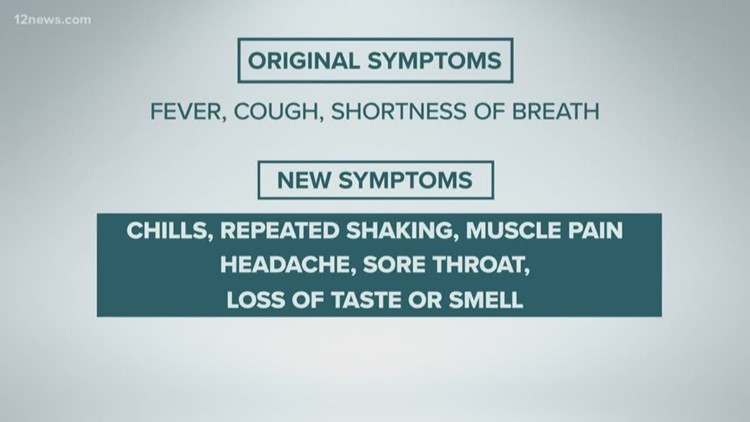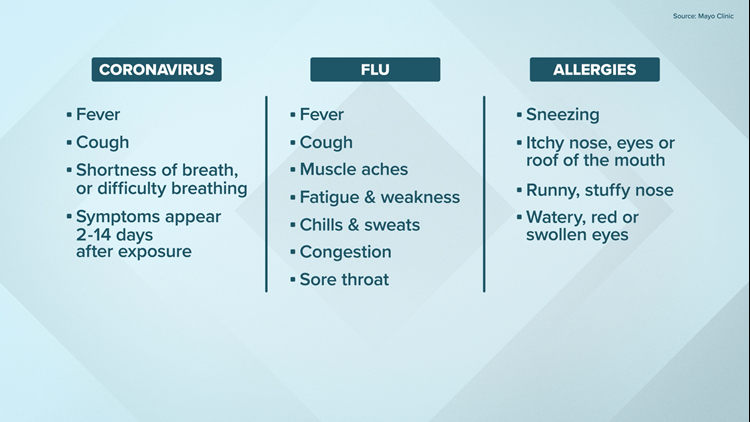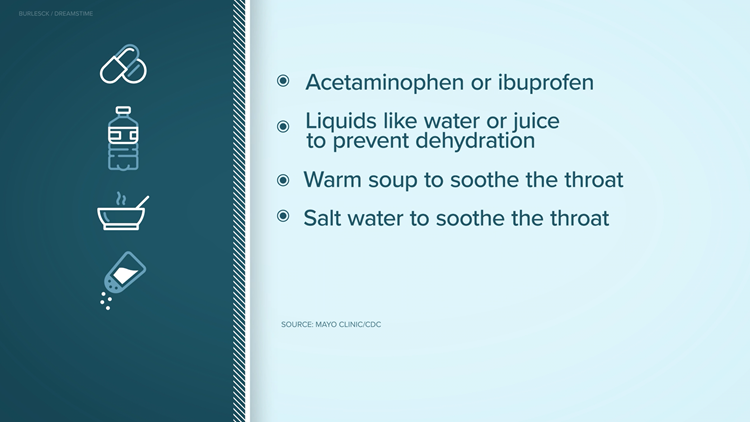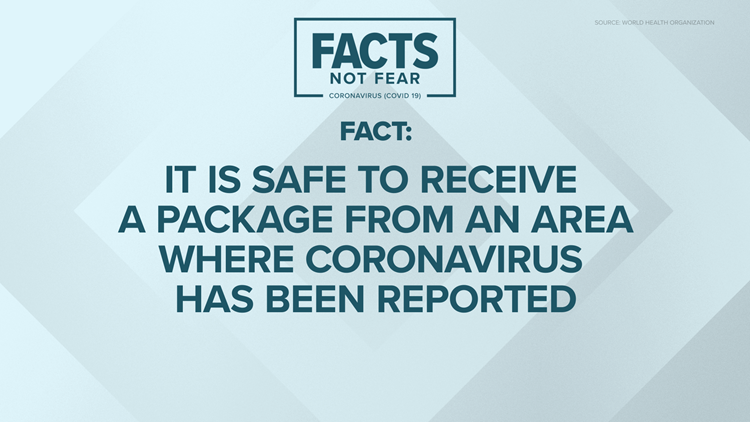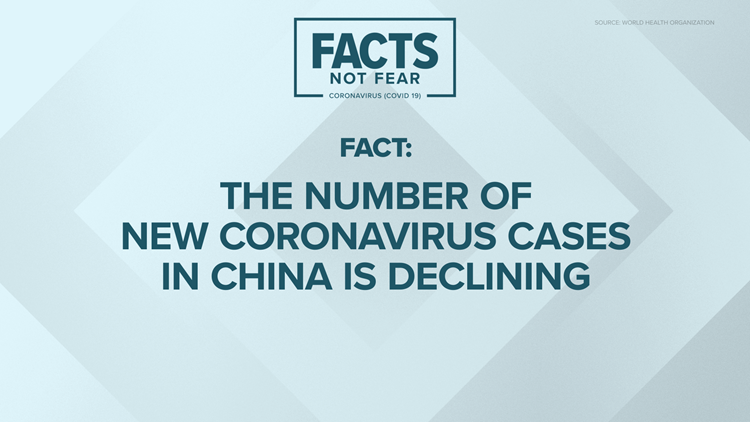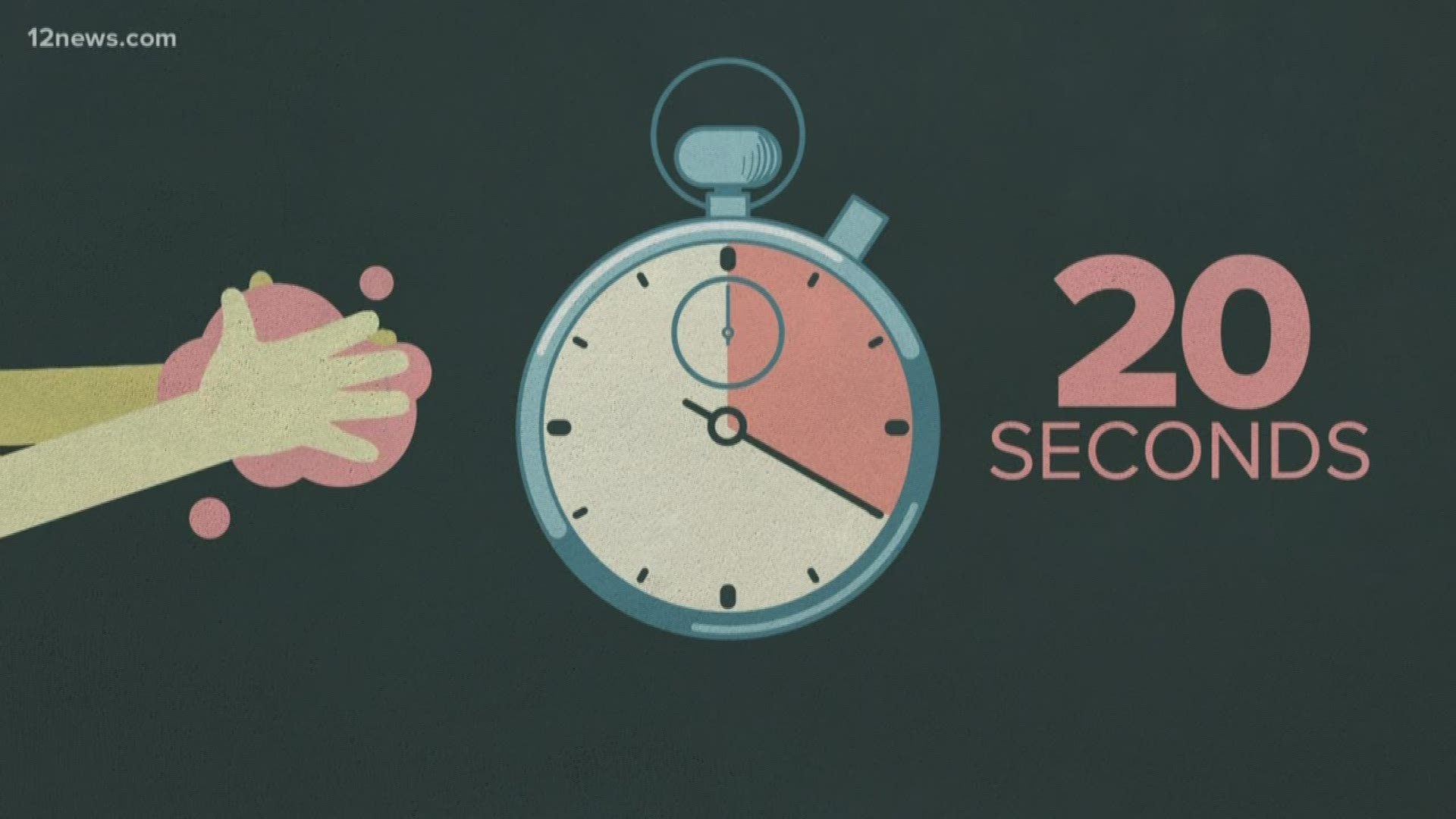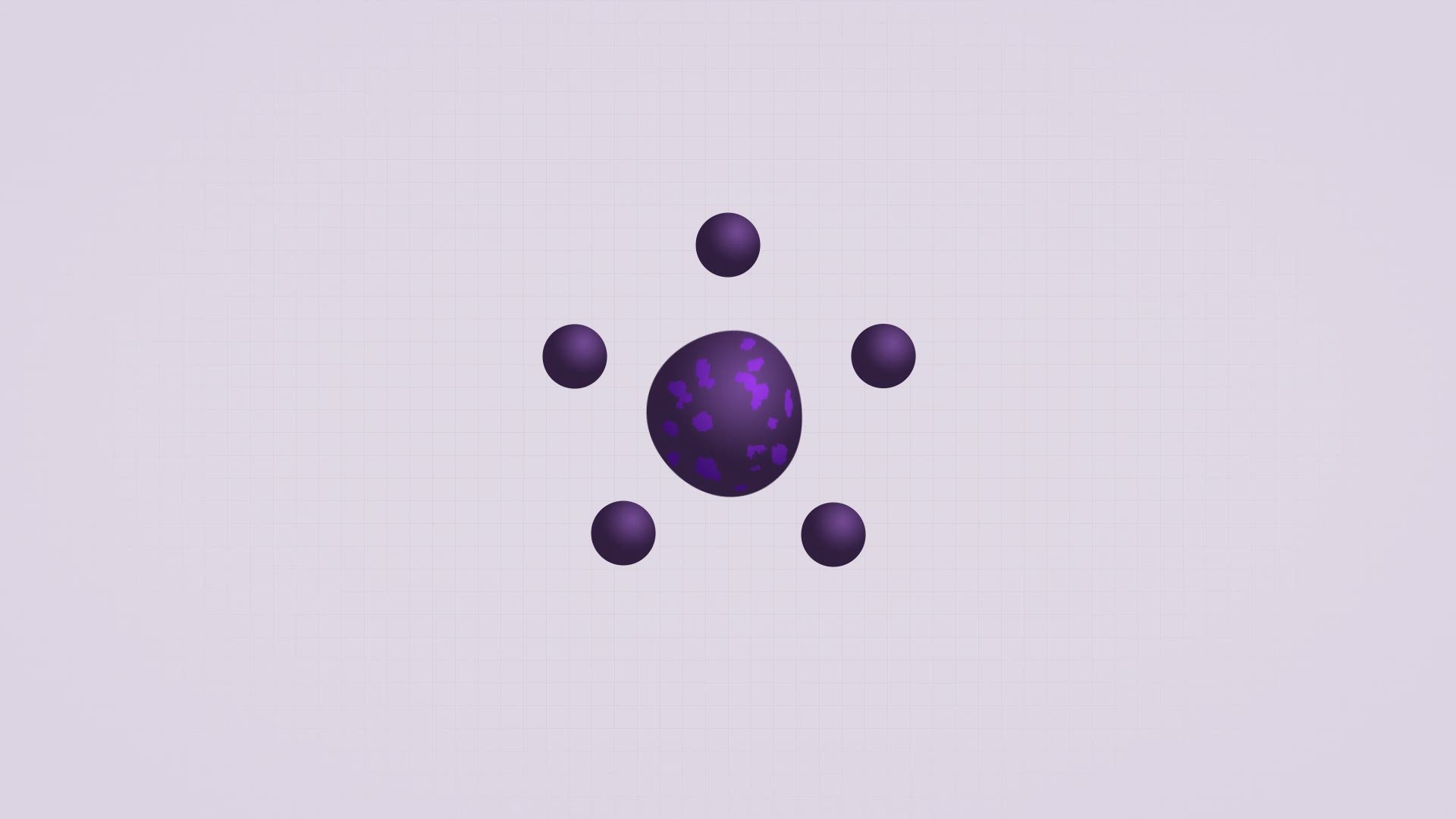There is a lot of news regarding the coronavirus in Arizona.
In an effort to track the changes, 12 News has started a daily live blog.
Here is the live blog for Thursday, April 16.
Major updates:
- There are now 4,234 confirmed cases of coronavirus in Arizona as of Thursday morning.
- 150 people have died from the virus or complications related to the virus in Arizona, as of Thursday morning.
- The state does not record how many people have recovered.
- Health department released expanded data regarding coronavirus cases in Arizona for the first time including ZIP codes of case locations. Scroll down for the ZIP code map.
- The IRS is now depositing coronavirus stimulus checks.
Need to know:
- Here's the national live blog for Thursday, April 16
- Here’s how to get tested for coronavirus in Arizona
- Concern grows for people quarantined with abusers
- How to prepare for an unexpected hospitalization amid COVID-19 spread
There are now 4,234 confirmed cases of coronavirus in Arizona,150 deaths
There are now 4,234 confirmed cases of coronavirus in Arizona, with 150 coronavirus-related deaths, according to the state's latest numbers.
Cases are up from 3,962 confirmed cases on Wednesday with 142 deaths.
One week ago, there were 3,018 cases and 89 deaths in Arizona.
Here's a county breakdown:
- Maricopa: 2,264
- Pima: 760
- Pinal: 197
- Coconino: 299
- Navajo: 410
- Apache: 118
- Mohave: 51
- La Paz: 5
- Yuma: 21
- Graham: 2
- Cochise: 18
- Santa Cruz: 14
- Yavapai: 68
- Gila: 3
- Greenlee: 2
Maricopa County has the most cases in the state. According to the county health department, there have been 2,257 cases and 64 deaths. Among those cases, 20% have been hospitalized and 6% have been admitted to the intensive care unit.

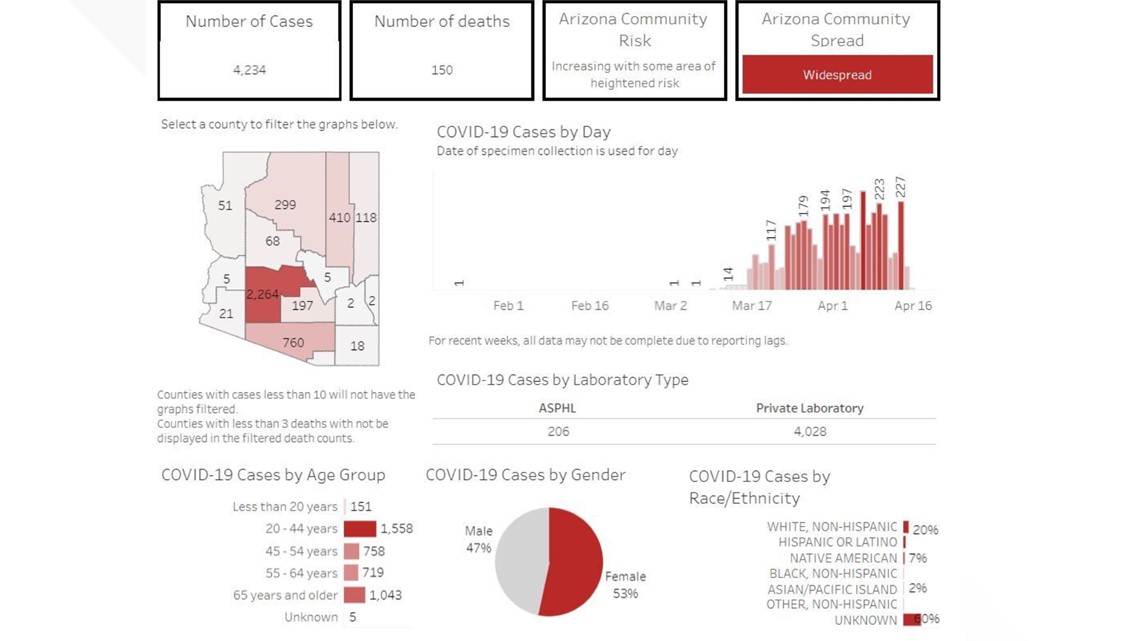
121 new cases and 3 more deaths on Navajo Nation; curfew extended
The total number of positive COVID-19 tests on the Navajo Nation has reached 1,042 as of Thursday, an increase of 121 cases over one day.
There is now a total of 41 virus-related deaths on the nation.
The Navajo Nation is extending the 57-hour weekend curfew for two more weekends in April. During the weekend, essential businesses will also close to curb the spread of COVID-19.
The first weekend curfew will begin at 8 p.m. on Friday, April 17 and end Monday, April 20 at 5 a.m.
The second weekend curfew begins at 8 p.m. on Friday, April 24 and ends on Monday, April 27.
Maricopa County Sheriff makes safety changes
Sheriff Paul Penzone says his office has taken numerous measures to protect deputies, staff and inmates from contracting COVID-19.
Among the changes include orders to reduce jail bookings through a "cite and release" policy for nonviolent, misdemeanor offenses. The county's jail population has been reduced to 5,500 from 7,400 just a year before.
Work furlough programs for inmates have been suspended, and detainees will resume their sentence at the end of the pandemic. Reintegration programs have been temporarily suspended to limit outside contact inmates receive.
Surgical masks are being provided to all inmates, and N95 level masks have been issued to all staff members of the department.
Penzone also noted that the department is suffering from a shortage of PPE, and their orders for more have been delayed several times.
Arizona releases ZIP code locations of coronavirus cases, other data
The Arizona Department of Health Services has released expanded data points regarding coronavirus cases in the state.
The AZDHS website now features the location of confirmed cases in Arizona by zip code.
Additionally, demographics including race and ethnicity on confirmed coronavirus-related deaths, hospital information and more are being reported by the state.
You can see the current ZIP code map below and can find yours by clicking around or searching for your ZIP code in the top right of the map.
AZDHS also released demographics on the coronavirus-related deaths in Arizona up to this point. As of Thursday morning, 61% of the 142 deaths have been men.
Data shows 40% of deaths in Arizona have been white/non-Hispanic individuals, 20% have been Native Americans, 10% have been Hispanic.
AZDHS shows the race/ethnicity are unknown in 25% of the deaths.

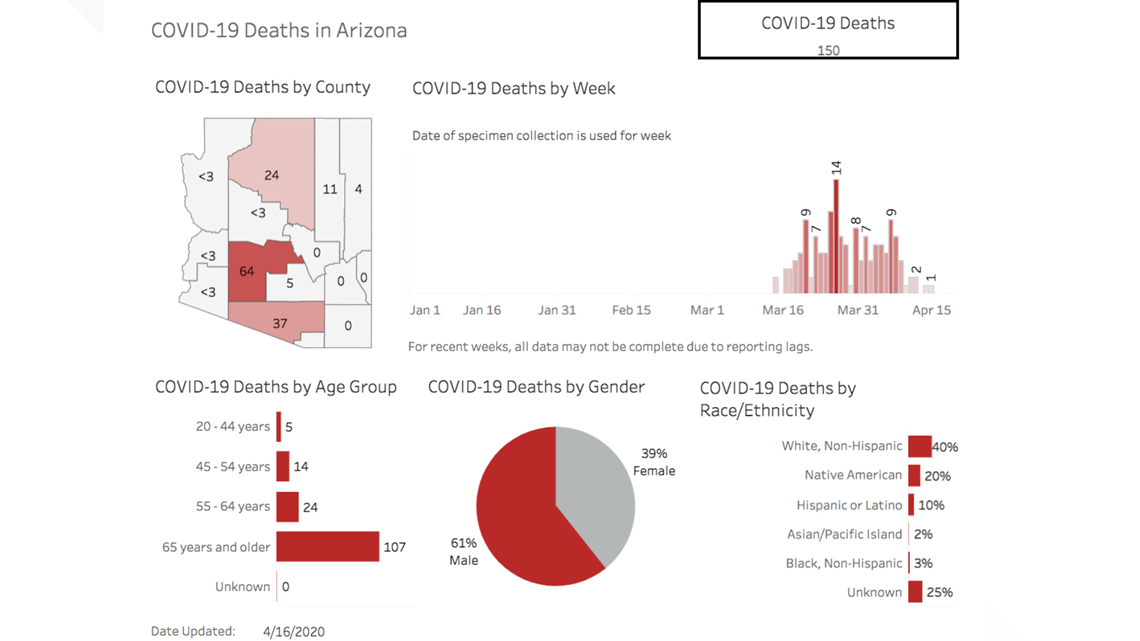
In terms of testing numbers, AZDHS shows 47,398 people have been tested in Arizona.
Since testing began in February, 92% of tests returned negative and 8% positive.
AZDHS shows how many tests have been conducted in each county on the map below.

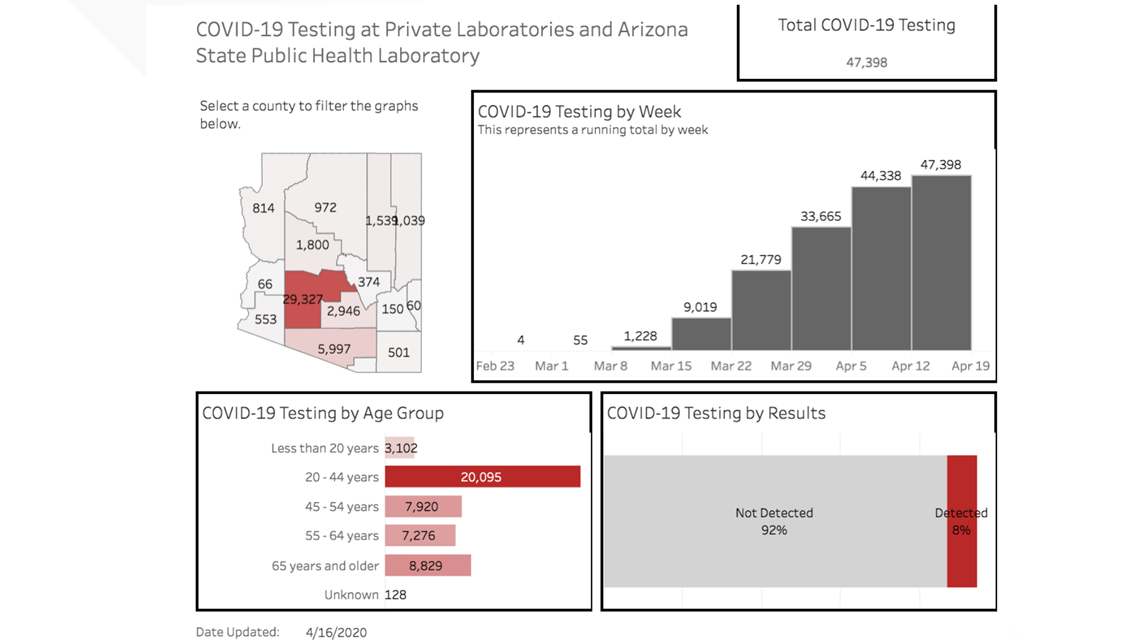
Navajo Nation extends weekend curfew
The Navajo Nation extended the 57-hour weekend curfew for two additional weekends in the month of April.
The new public health emergency order announced by President Jonathan Nez and Vice President Myron Lizer also closed essential businesses during weekend curfews due to community spread of COVID-19.
As of Wednesday, the total number of positive COVID-19 cases reached 921 with 38 deaths in Navajo Nation.
The first weekend curfew will begin at 8:00 p.m. on Friday and ends on Monday, April 20 at 5:00 a.m. The second weekend curfew will begin at 8:00 p.m. on Friday, April 24 and ends on Monday, April 27 at 5:00 a.m.
The curfew doesn't apply to essential employees going to or from work at an essential business, but they must have "official identification or a letter of designation from their employer on official letterhead which includes a contact name and number for verification."
People can still tend to live stock during the curfews but vendors will not be permitted operate to the public so they are encouraged to buy hay and feed ahead of time.
Coronavirus testing available in Tusayan, Williams this week
Grand Canyon University student tests positive
A Grand Canyon University student tested positive for COVID-19, the university announced Wednesday.
The university said in a letter that it learned on Wednesday afternoon that a student who is residing on campus tested positive. It's the first positive case for anyone connected to campus, officials said.
The student came to the GCU Health and Wellness Clinic on Tuesday with symptoms, was identified within 24 hours as testing positive and was immediately placed into isolation in a vacant GCU residence hall.
They are receiving ongoing care while in isolation.
The student resided in Papago Hall. The student had minimal movement on campus aside from his room, university officials said.
Every individual who has been in close contact with the student has been contacted by university officials. One of those is a student who resides off campus and has been instructed to self-quarantine. The other two are students who reside on campus and have been placed in quarantine for further evaluation and testing.
University officials are not concerned with exposure to anyone else at this time and have performed sanitation and sterilization of common areas within Papago.
Mesa launches Mesa CARES program
The City of Mesa Office of Economic Development has launched Mesa CARES.
It is designed to help Mesa’s small businesses navigate through the current economic challenges.
The Mesa CARES Business Assistance Center will act as the city's key source of information and assistance for businesses needing access to financial support programs and resources.
The center will assist Mesa businesses with questions regarding federal, state, and City of Mesa programs and will provide guidance through the application processes for the various CARES Act financial programs.
U.S. Sen. Martha McSally named to Trump's task force
COVID-19 is believed to be primarily spread through coughs or sneezes.
It may be possible for the virus to spread by touching a surface or object with the virus and then a person touching their mouth, nose or eyes, but this is not thought to be the main method of spread, the CDC says.
You should consult your doctor if you traveled to an area currently affected by COVID-19 and feel sick with fever, cough or difficulty breathing.
There is no vaccine for the coronavirus, so the best way to prevent COVID-19 and other respiratory diseases is to:
- Avoid close contact with people who are sick.
- Avoid touching your eyes, nose, and mouth.
- Stay home when you are sick.
- Cover your cough or sneeze with a tissue, then throw the tissue in the trash.
- Clean and disinfect frequently-touched objects and surfaces using a regular household cleaning spray or wipe.
- Wash your hands often with soap and water for at least 20 seconds. If soap and water are not readily available, use an alcohol-based hand sanitizer.
You can text FACTS to 602-444-1212 to receive more information on the coronavirus and to ask questions.

